Yves Béhar describes his approach to design, built around a core of sustainable processes and positive social impact
Yves Béhar is the Swiss-born American founder of Fuseproject, a San Francisco-based multidisciplinary design studio with an outpost in Lisbon. Béhar's work is held in collections at both MoMA and SFMoMA and includes everything from mobility design to medical technology, robotics and high tech start-ups
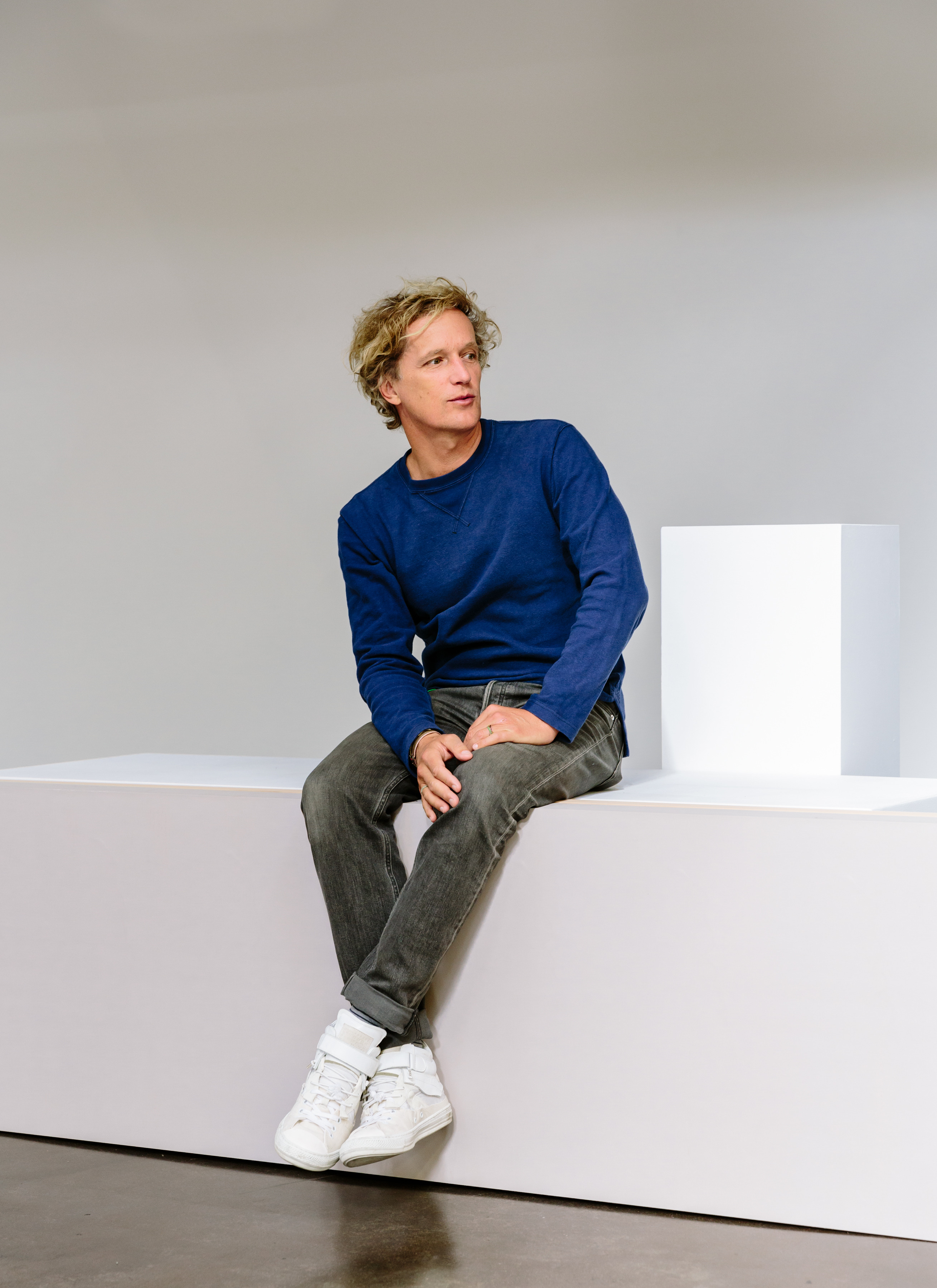
It’s interesting to see where we’re at with EVs. Over the last 20 years, it’s been my experience that, once accessibility to previously closed manufacturing opens up, new challenger companies want to design products that defy the status quo. What’s different now is that engineers and entrepreneurs are determined to produce cars that people actually want, not just versions of the same vehicles driven by marketing.
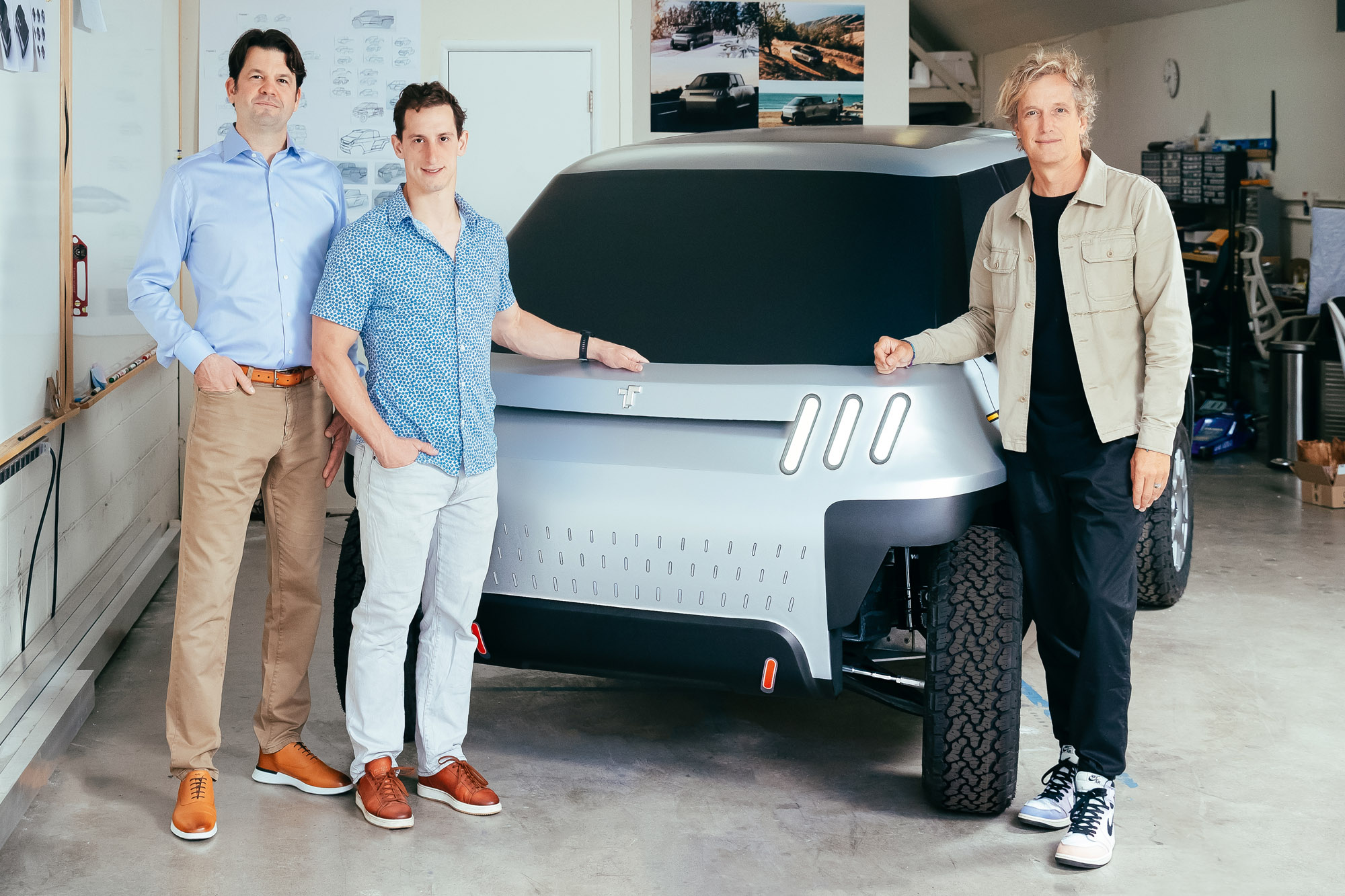
Telo co-founders Jason Marks and Forrest North with Yves Béhar
I’m always excited by fields where access to the production tools have been democratised – it opens the door to new types of products and services. I see this revolution happening across multiple industries today. If we only relied on bigger players, things just wouldn’t move as fast, or even move at all. On the West Coast, I have always felt we live and work surrounded by inspiration. It’s a progressive market that industries want to tap into. I remember being a student at ArtCenter and realising that car companies from around the world had advanced studios in California because it was so rich with a lifestyle and new ideas that influence innovation.
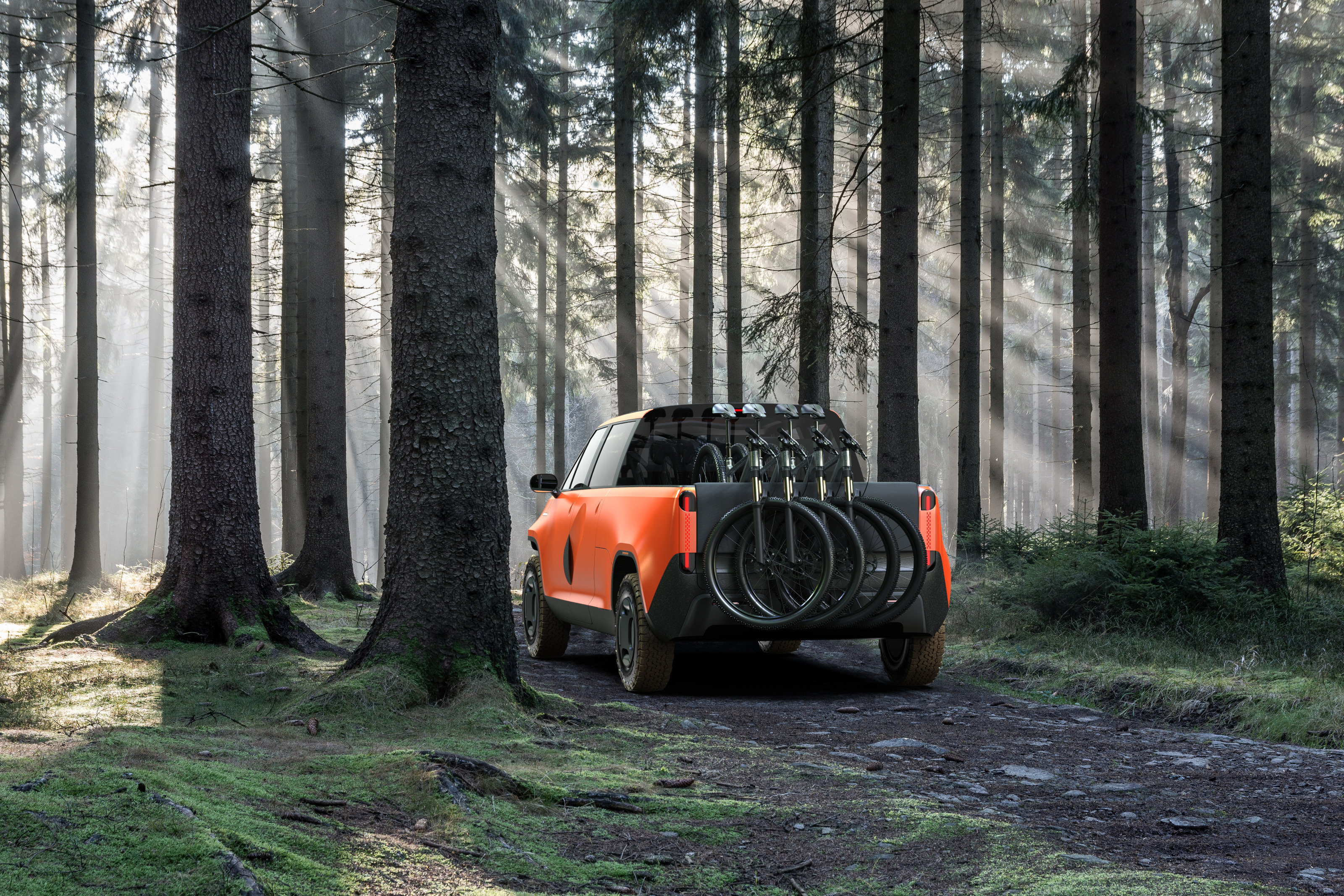
Telo EV, designed by Fuseproject
With the world getting smaller, for me, the best export of Silicon Valley is the entrepreneurial spirit – a very contagious ideal. As I travel in Europe, Asia and Africa, I consistently experience the entrepreneurial spirit. Admittedly, the politics have been difficult in the US with the erosion of social cohesion and deep divisions created by demagoguery. From my experience, entrepreneurship and innovation really thrive in an open and inclusive world.
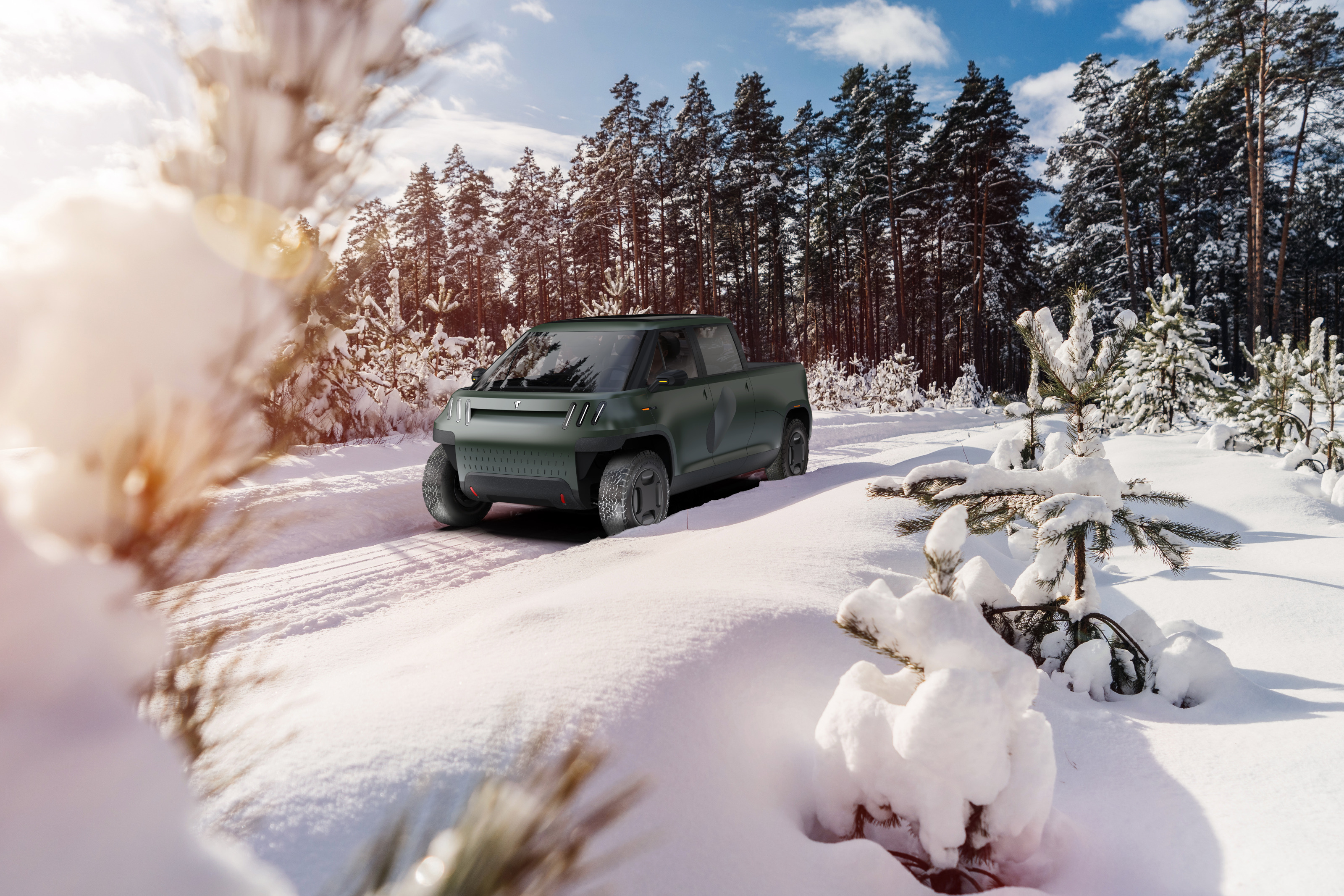
Telo EV, designed by Fuseproject
When I came to San Francisco in the mid-1990s, the teams I was working with were incredibly diverse in terms of geographical backgrounds and skills. I don’t think that has changed in California – an open market for ideas and people is the best way to get innovation, and I can see it happening every day. But there is a danger looming with the introduction of retrograde policies and ungenerous ideas, because new ideas require openness and generosity. I deeply believe that an open and diverse world benefits progress with innovation and design. This is something that fortunately I continue to experience with our teams at Fuseproject both in San Francisco and Lisbon.
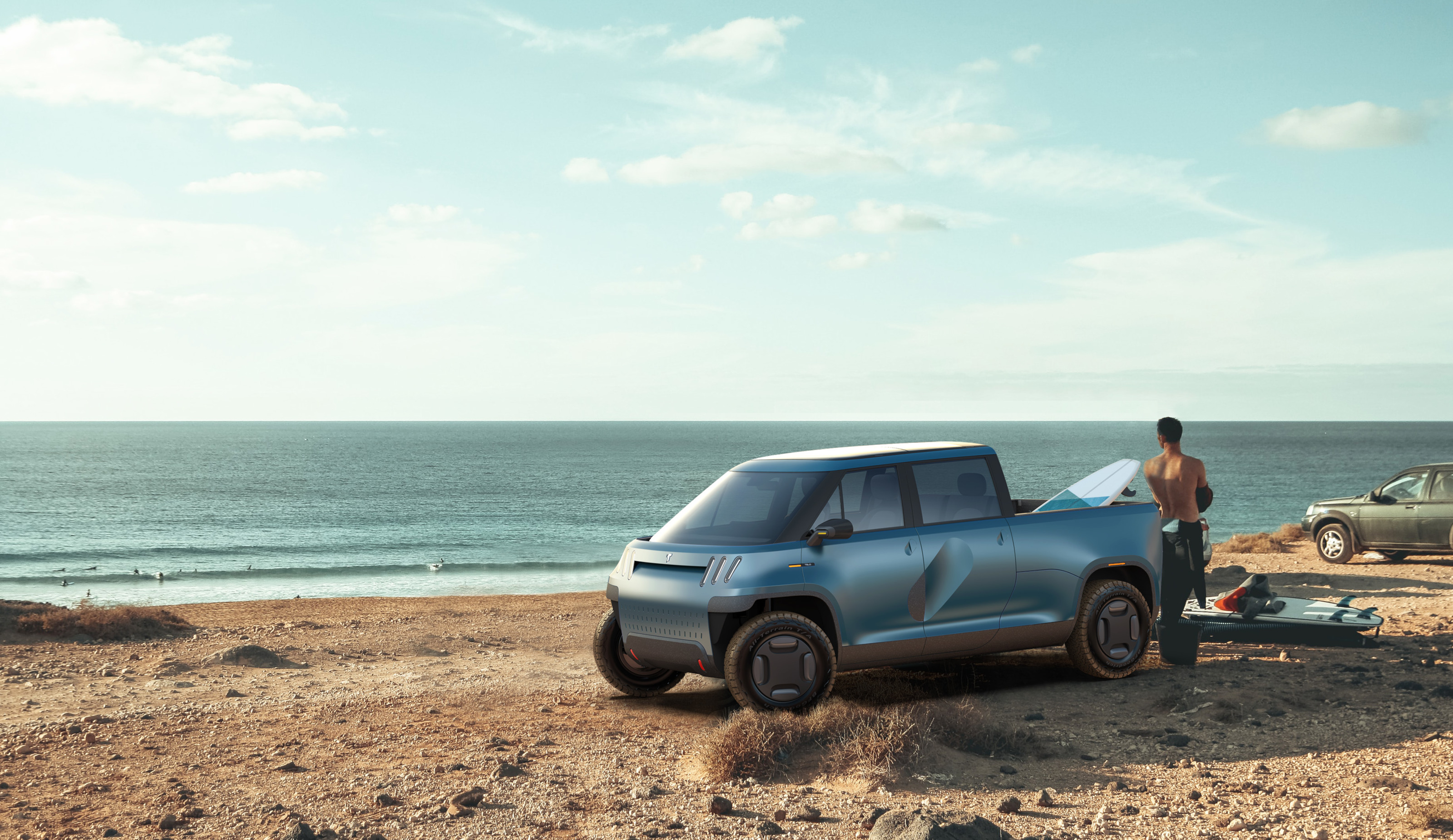
Telo EV, designed by Fuseproject
I also subscribe to the idea that creativity and building new ideas is the best way to move forward.
In 2025, I’m very excited to be presenting the next stage of the electric vehicle company I co-founded, Telo. While we’ve seen a real transition towards electric vehicles, most of the products on the market are very conventional and are not taking advantage of the opportunities and efficiencies that batteries and electric motors represent.
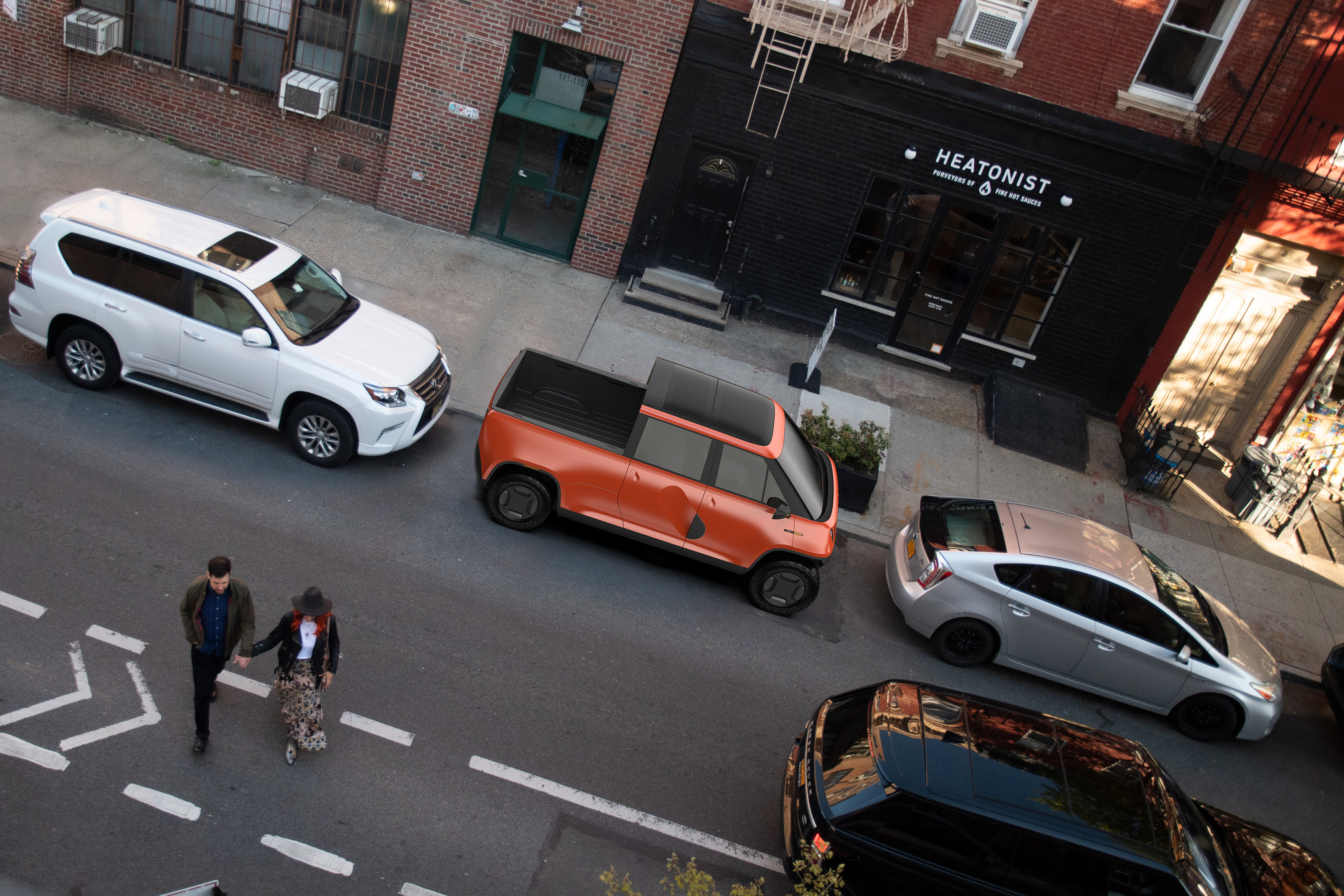
The ultra-compact Telo EV
I do believe that there is a new generation of EV start-ups that are exploring a fuller potential for the technology. When one looks at cities today, the trend to build cars that are ever larger is problematic. SUVs and trucks are just too big today and don’t deliver any new functionality. Their gluttonous size makes them very dangerous to pedestrians and cyclists, and just plain inefficient.
Wallpaper* Newsletter
Receive our daily digest of inspiration, escapism and design stories from around the world direct to your inbox.
Telo is solving this issue, creating a full-feature pick-up truck with the same interior and exterior space as a Toyota Tacoma, but with the dimensions of a Mini Cooper. We are designing for functionality and practicality that matches the larger trucks’ interior and exterior volume, and with a dramatic increase in efficiency and overall experience. EV technology has tremendous potential benefits when designed from the ground up, so why not use them?
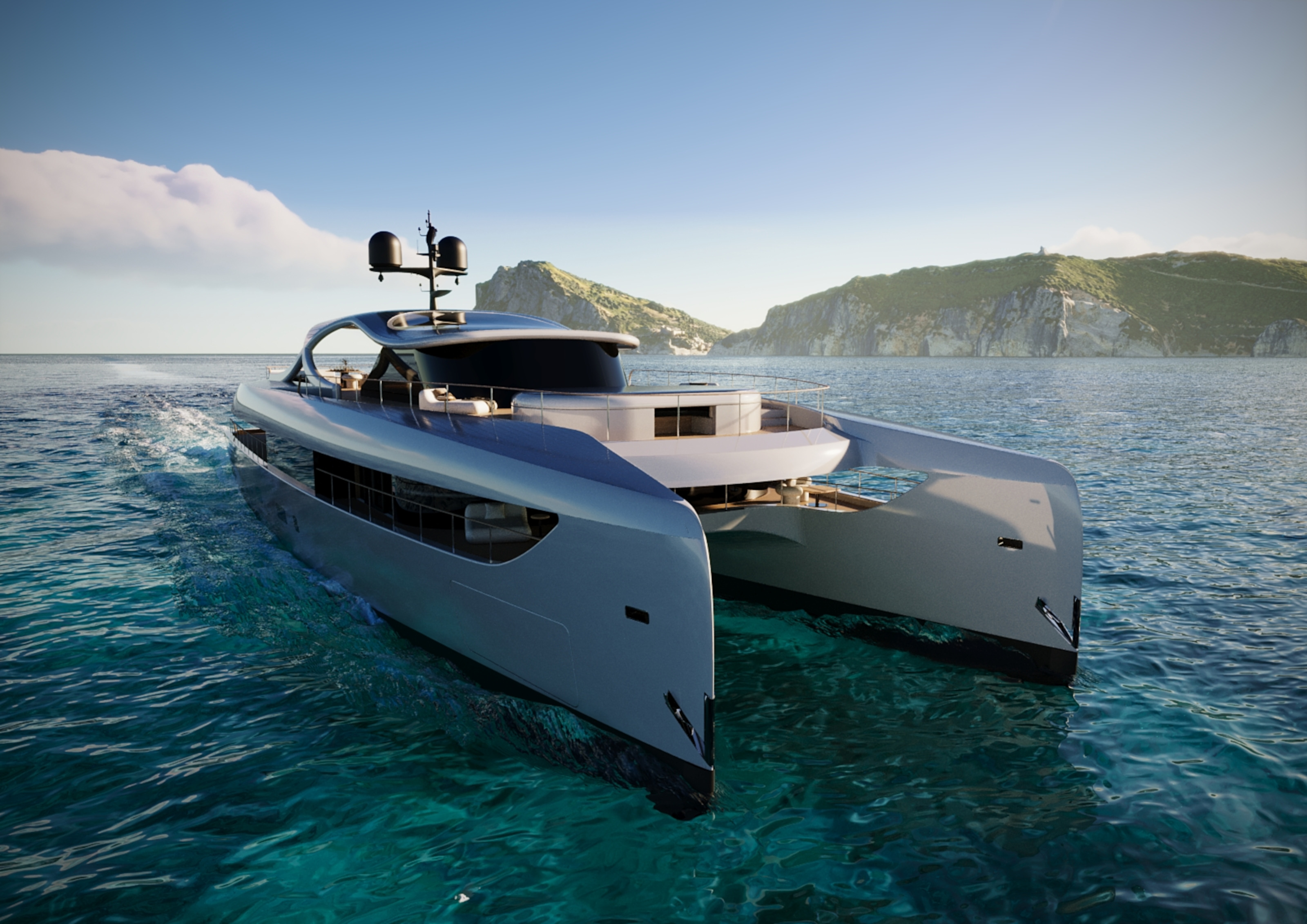
Solsea, a solar hybrid-electric superyacht created in collaboration with the Italian shipyard Rossinavi.
For 2025, we have made some significant forays into areas of major transformation: electrification, clean energy, transportation, the smart home, and healthcare. We recently presented the future of sea travel with the solar hybrid-electric superyacht Solsea, an advanced catamaran created in collaboration with the Italian shipyard Rossinavi. Integrated solar panels and batteries enable cruising for day trips using 100 per cent electric power and zero emissions as a result.
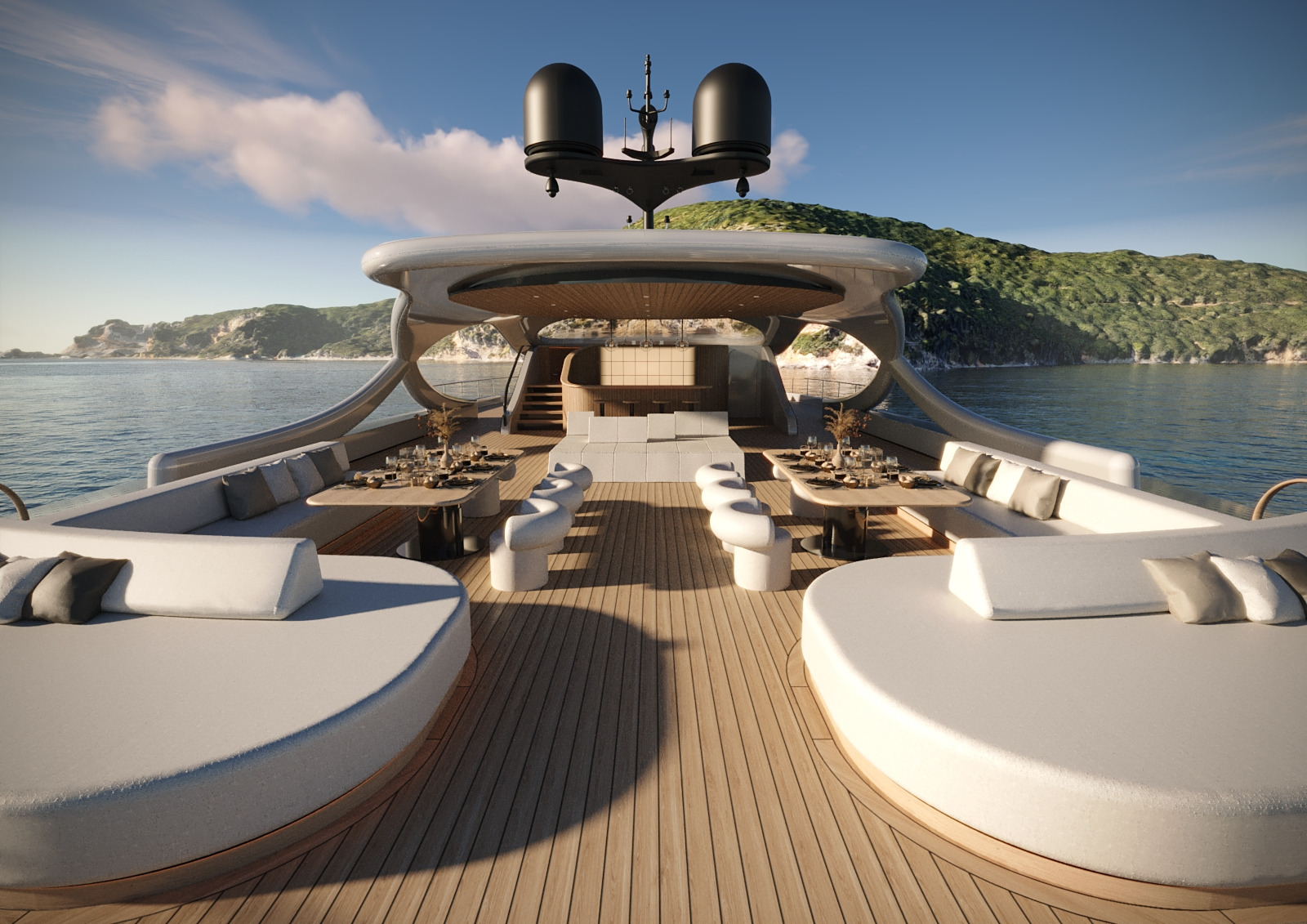
Solsea, upper deck
For longer voyages, such as an Atlantic or Pacific crossing, Solsea offers an 80 per cent reduction in fuel consumption and operating costs thanks to its hybrid-electric propulsion system. Every detail of the boat’s technology is designed with major reductions in cost of operation and carbon footprint. For example, we have replaced teak flooring, which comes from rainforests, with a new formulation of cork made specifically for boats. The material, made by Amorim in Portugal, is lighter, sound insulating and extremely durable.
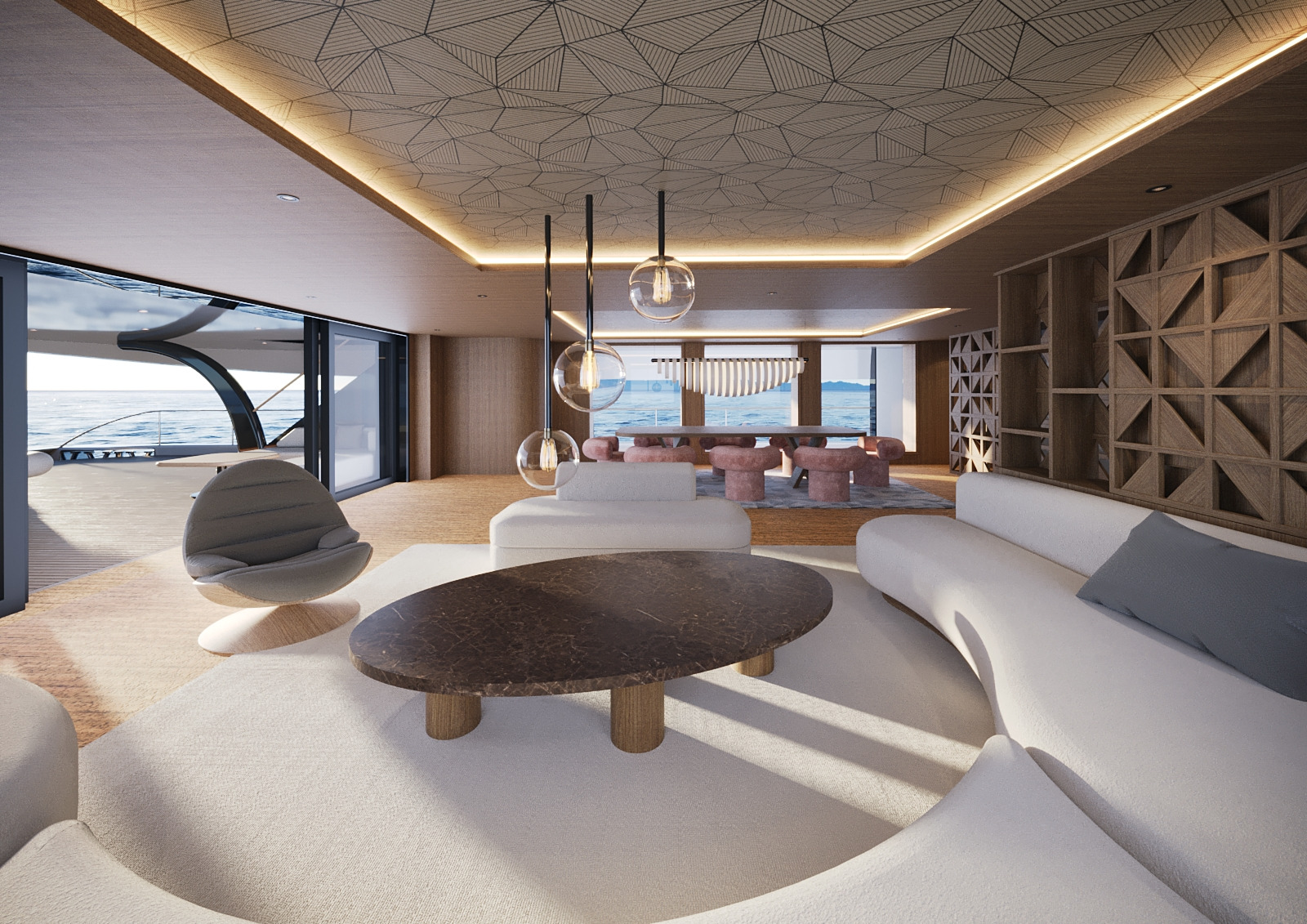
The main living area aboard Solsea
In terms of how such efficiencies could be achieved in other industries, we’re currently working on a large robotic vehicle to accelerate solar panel installation. It’s an industrial piece of machinery that will automate large-scale solar infrastructure. I’m also working on a project in the domestic sphere with Laufen, with more carbon-neutral innovations and design in bathroom ceramics. These are all stories that bring together the latest technology in fields where carbon reduction hasn’t seen much progress. Everything needs to be transformed for a green industry transition – and with a will to change, I believe that we can create better experiences that eventually become the standard for entire industries.
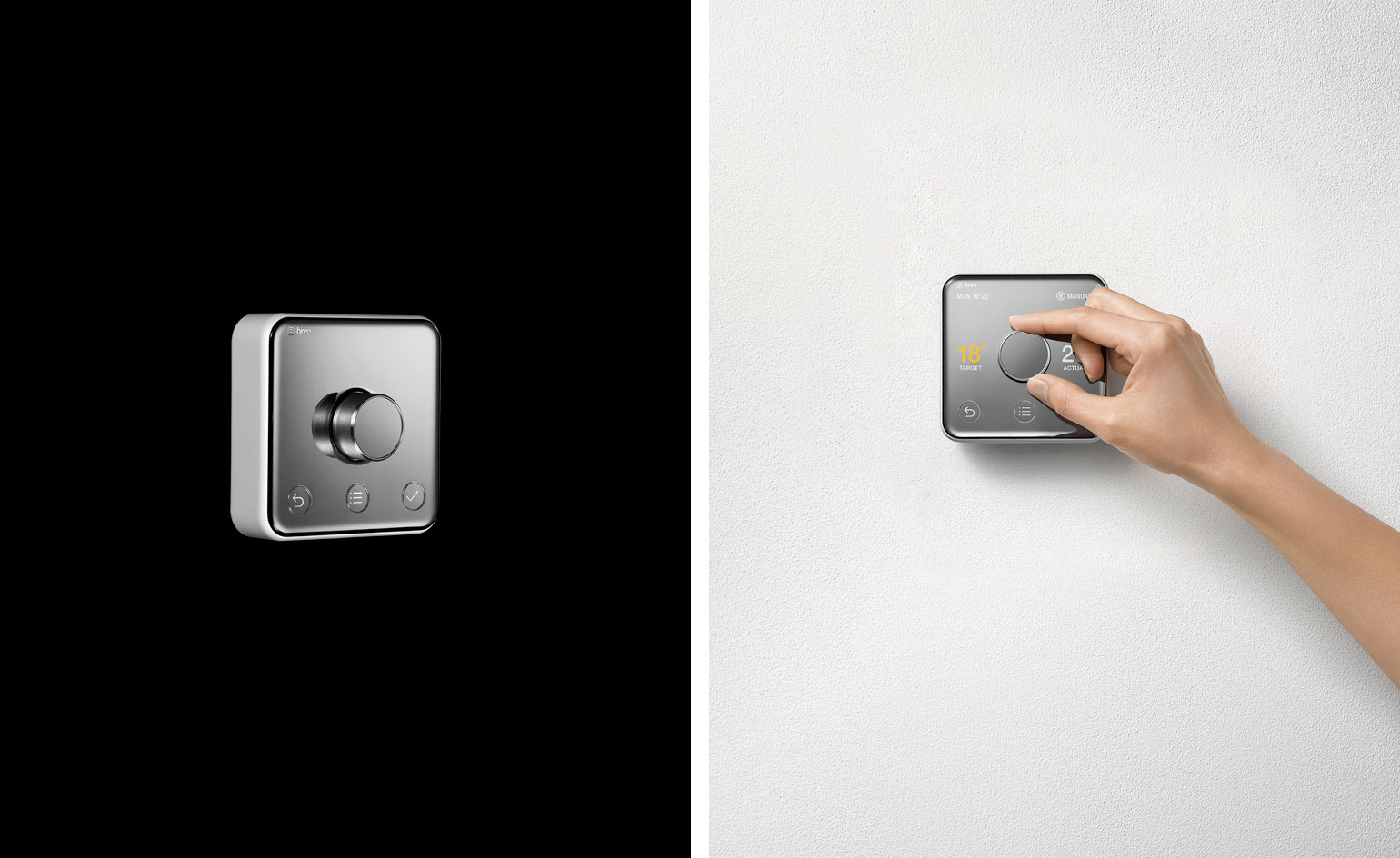
Hive 2 thermostat, designed by Yves Béhar and Fuseproject
Another area that we see starting to fulfil promises is the smart home. We have assembled the original team behind August Home, the smart lock company I co-founded with Jason Johnson in 2012 and which is still the leader in the category. We’re creating a new company to reimagine home access, security and control. Since Covid, there has been a new emphasis on our home lives, and 2025 will see the major tech companies and some start-ups bring new solutions for the domestic environment. With the use of AI, we can deliver a healthy, safe home more efficiently.
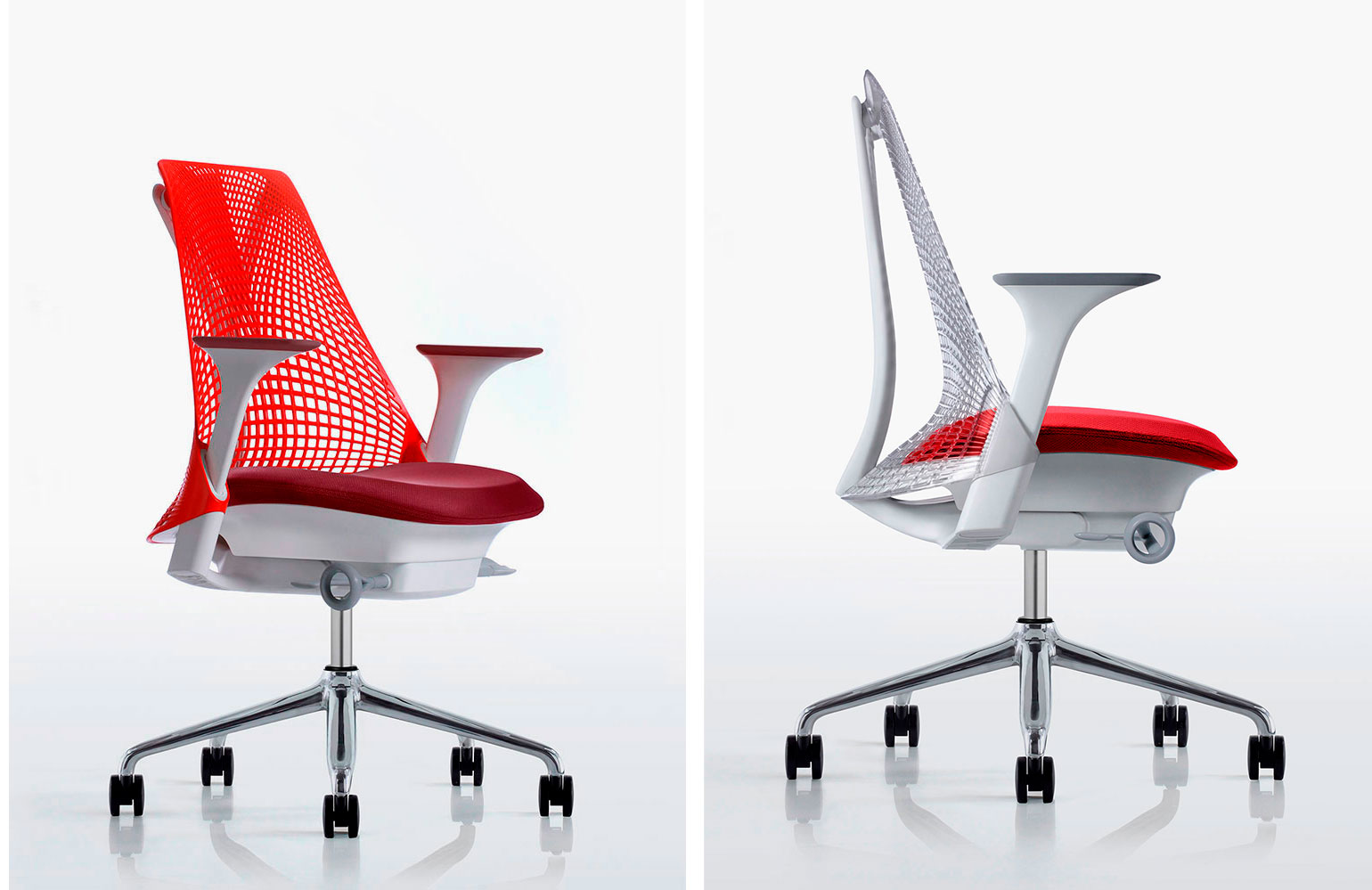
Herman Miller, SAYL Office Chair, by Fuseproject
Where the smart home hasn’t caught the popular imagination, we have a vision for a cohesive solution. Some larger players, like Samsung, connected all their products together, from dishwashers to televisions. But for me, the internet of things is arriving to us so far as a kit of parts rather than an easy experiential ecosystem. It is common to use climate control, home security and baby cameras currently, and the next stage is to assemble disparate parts into a cohesive and useful experience. It’s all part of a drive to design and live in healthier homes.
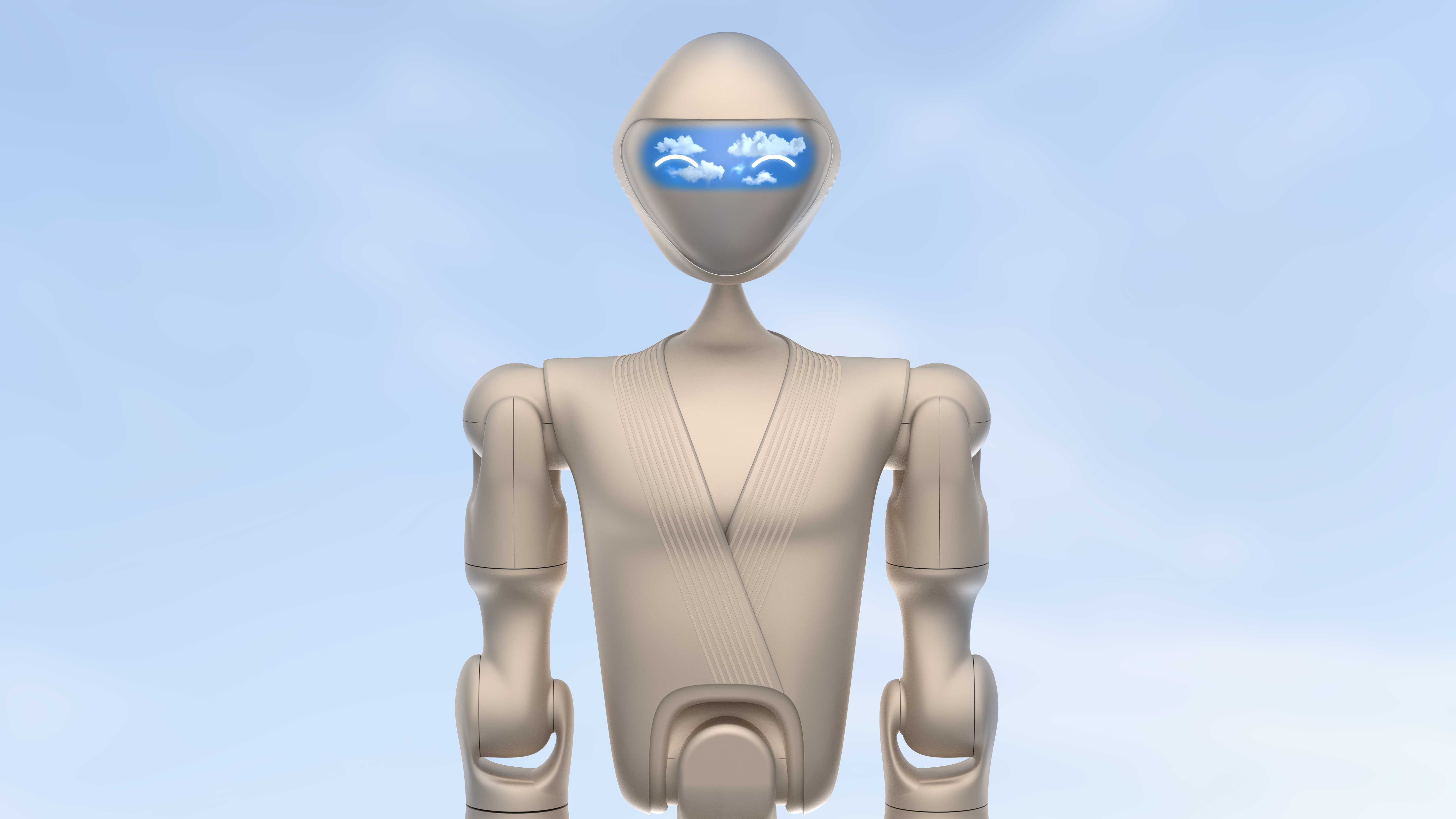
Kind Humanoid by Fuseproject
AI is dominating the current conversation, and the possibilities it brings is a strong focus for Fuseproject, specifically in the areas of health and healthcare, ageing in place, mental well-being and education. These are all areas that lack efficiency, are understaffed, and where AI is at the service of the individual. I think these are relevant and important areas to put creative attention towards. On the other hand, the use of AI in social media marketing and targeting seems to be just another layer that reinforces the negative impacts of social media on individuals, society and democracy. We should leave the obsession with social media, and the businesses that exploit it, behind and focus on the greater good that technology can achieve.
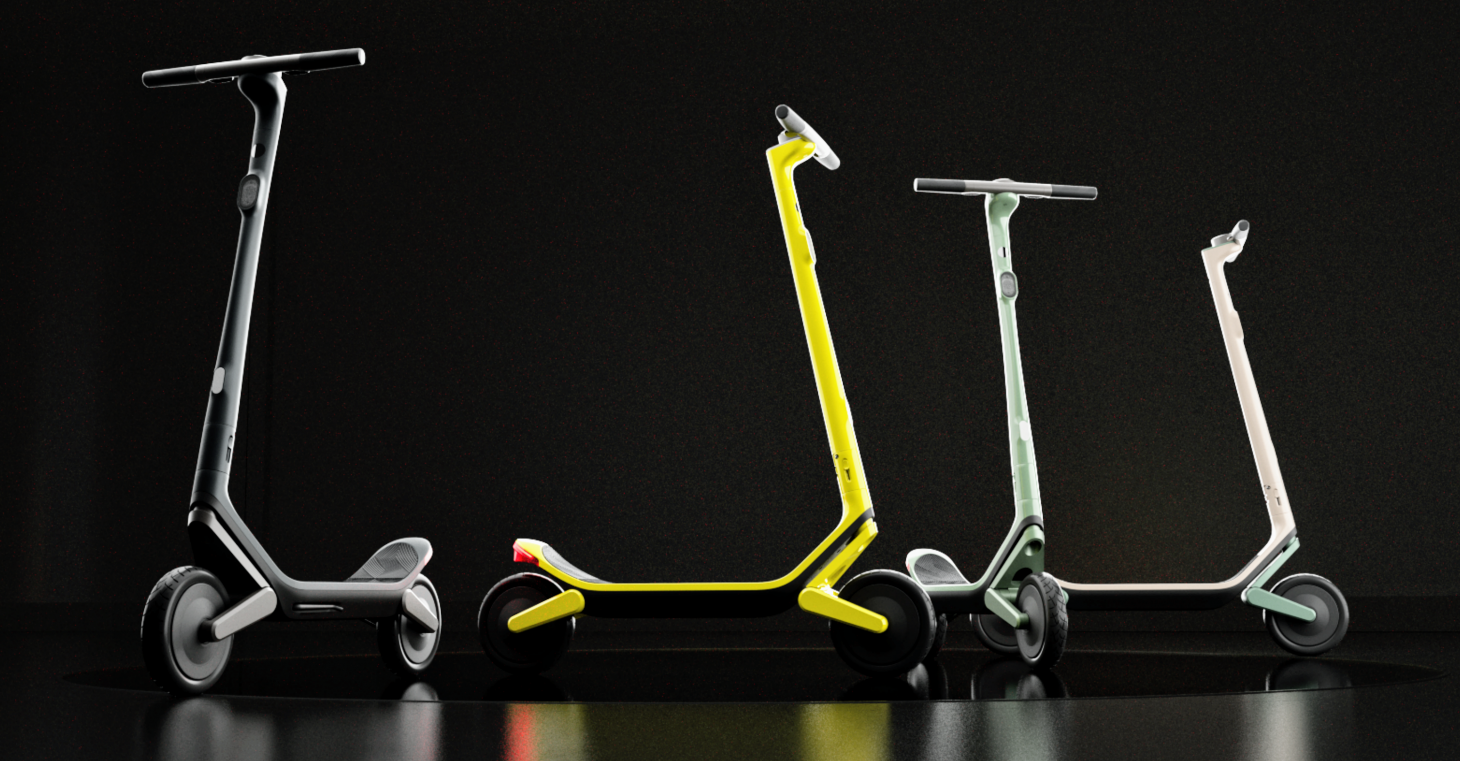
Unagi's Model Eleven electric scooter, designed by Fuseproject
As always, it’s a matter of intent: what do we want to apply the human spirit of innovation to? To me, the question isn’t whether climate change, health and safety or progress towards peace is achievable... of course it is.
But the larger roadblock that prevents progress and change is our lack of social cohesion. It doesn’t matter whether we try to gather five people, 500 or five billion towards change: without a basic human project we can agree on, it cannot proceed, and we are stuck. The absence of a shared vision at any scale of what is good for us and the planet means we are doomed to continue to be lost and aimless.
Our sense of citizenry, of belonging to a common plan, has been atomised by disinformation and division. The central challenge of our time is how to come together, work together, build together. Design and innovation needs to show us solutions for the everyday and for the future, solutions that accelerate the ideas of an enlightened 21st century. Human ingenuity can, and will, win.
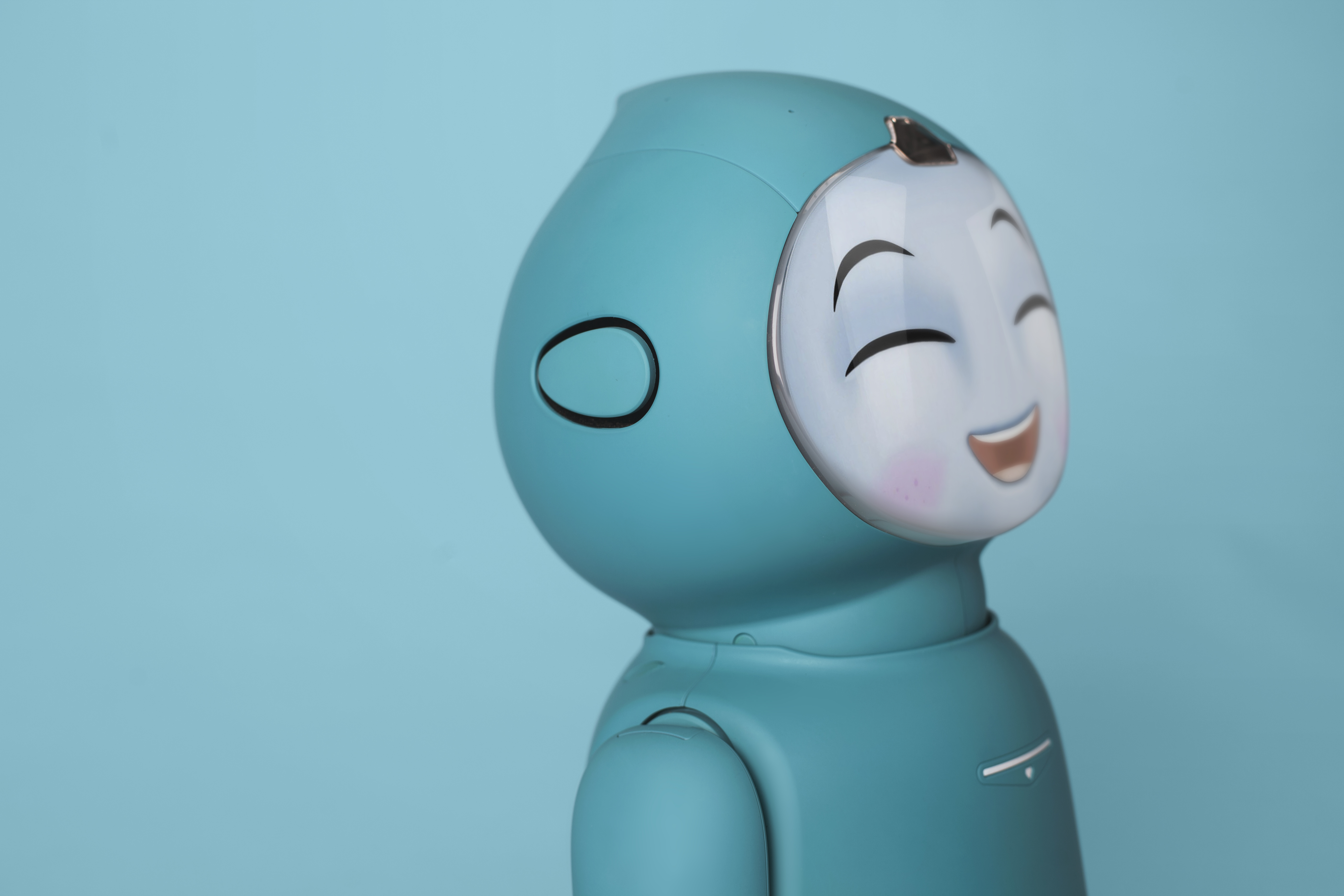
Moxie robot, designed by Fuseproject
But when? I believe it is when we rid ourselves of extreme tribal self-interest and build a humanistic and global vision of interconnectedness that we can join.
Fuseproject.com, @FuseprojectSF
Yves Béhar is a Swiss-born American designer, entrepreneur, and educator. He is the founder and principal designer of Fuseproject, an industrial design and brand development firm
-
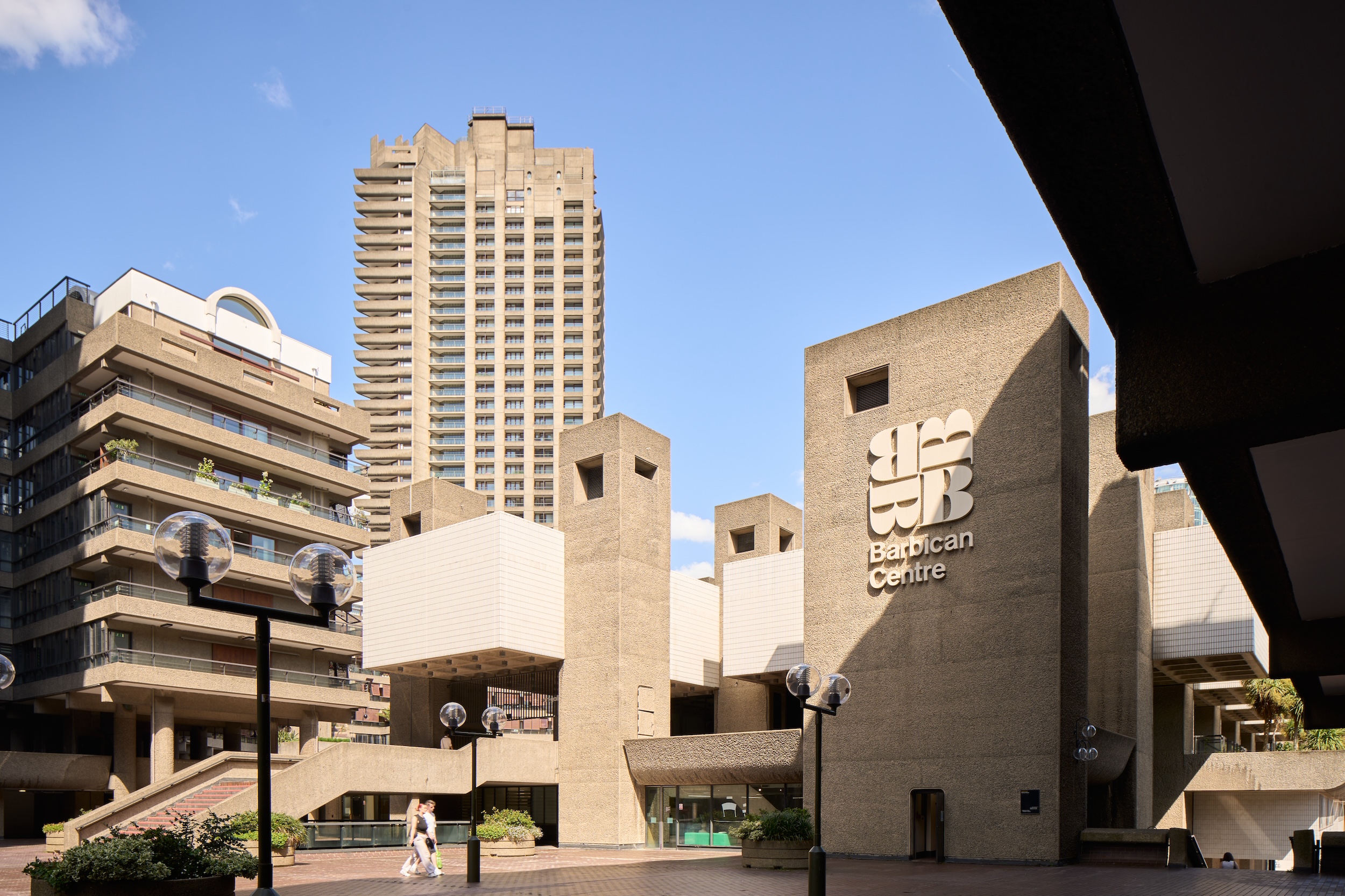 Warp Records announces its first event in over a decade at the Barbican
Warp Records announces its first event in over a decade at the Barbican‘A Warp Happening,' landing 14 June, is guaranteed to be an epic day out
By Tianna Williams
-
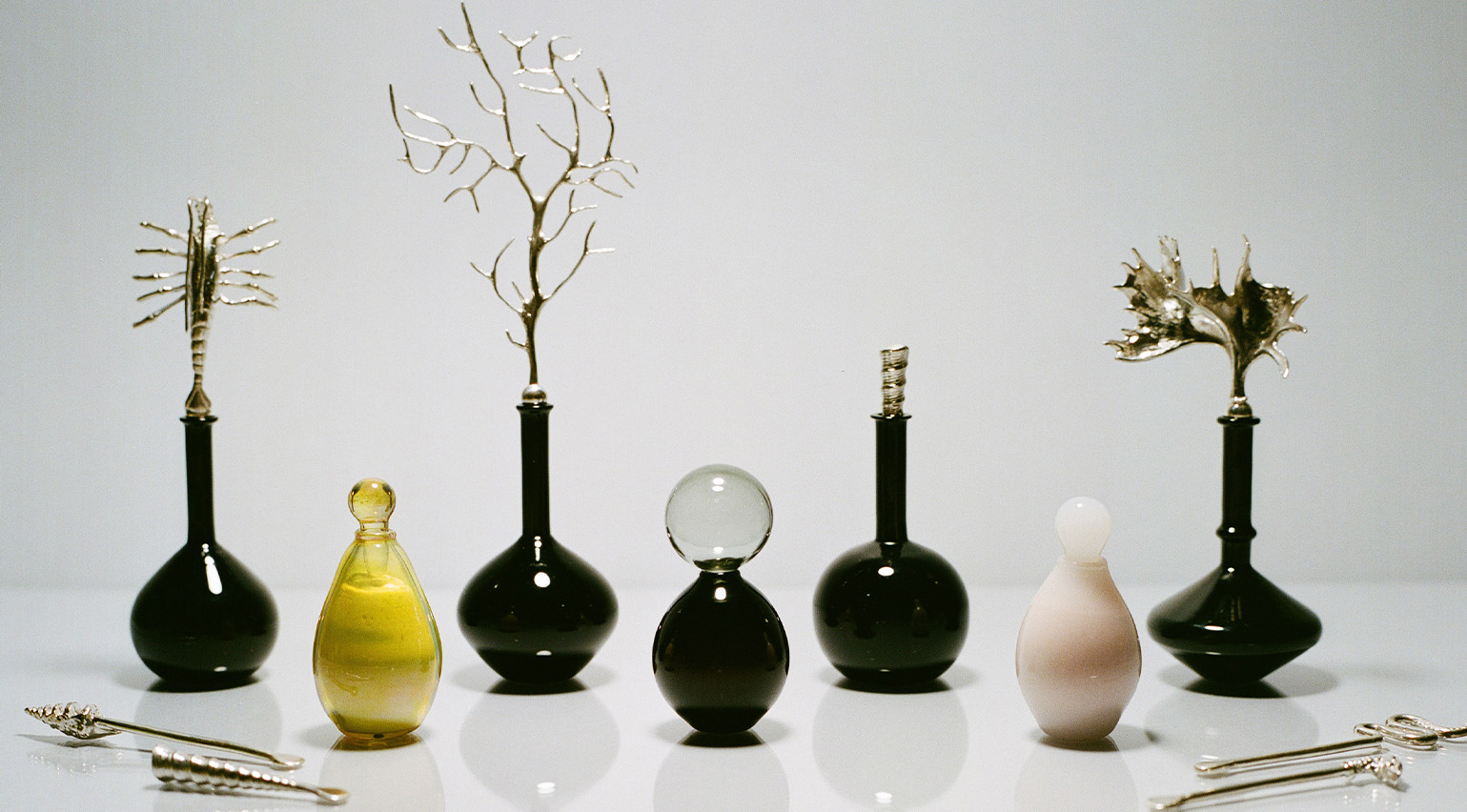 Cure your ‘beauty burnout’ with Kindred Black’s artisanal glassware
Cure your ‘beauty burnout’ with Kindred Black’s artisanal glasswareDoes a cure for ‘beauty burnout’ lie in bespoke design? The founders of Kindred Black think so. Here, they talk Wallpaper* through the brand’s latest made-to-order venture
By India Birgitta Jarvis
-
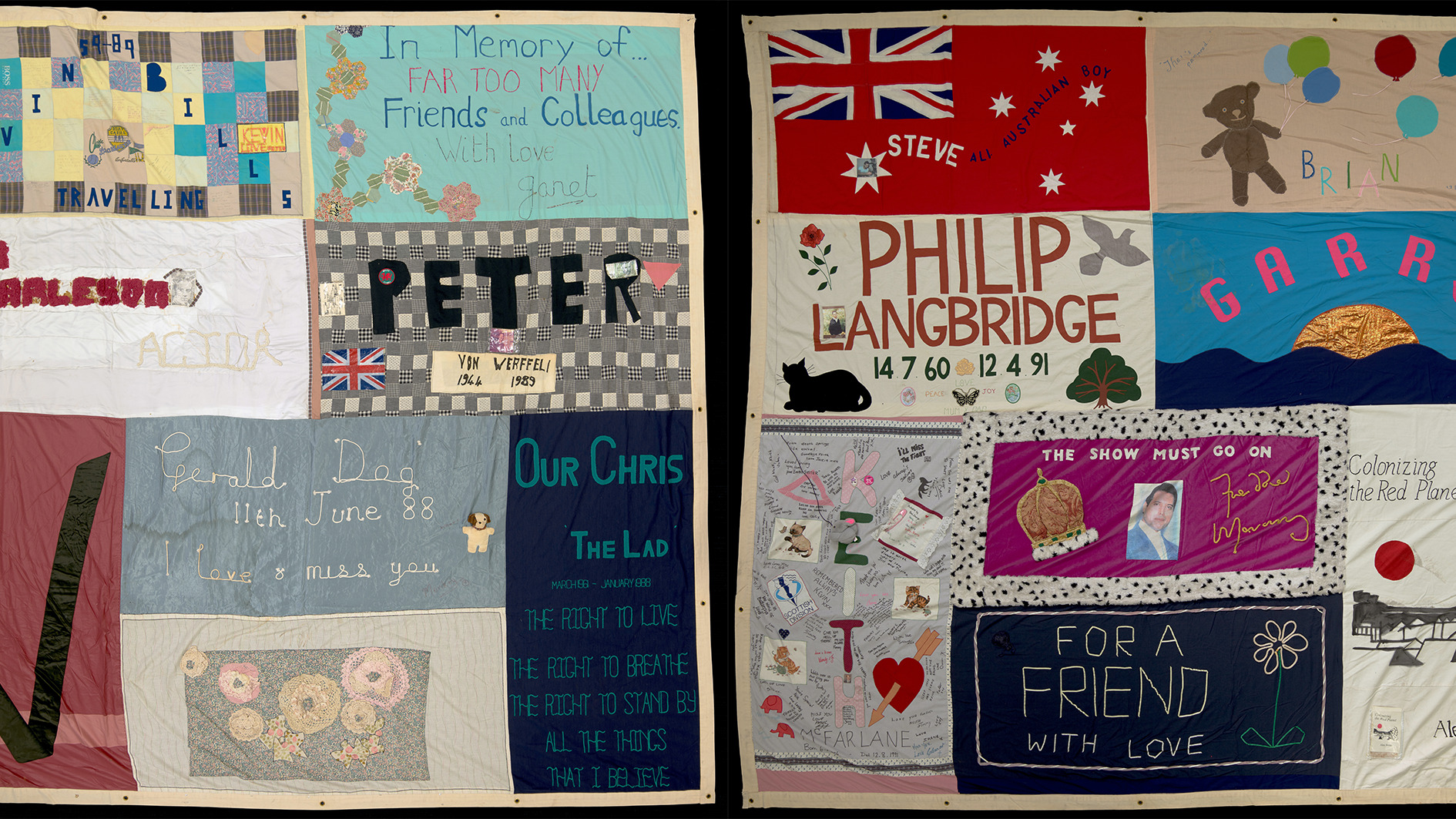 The UK AIDS Memorial Quilt will be shown at Tate Modern
The UK AIDS Memorial Quilt will be shown at Tate ModernThe 42-panel quilt, which commemorates those affected by HIV and AIDS, will be displayed in Tate Modern’s Turbine Hall in June 2025
By Anna Solomon
-
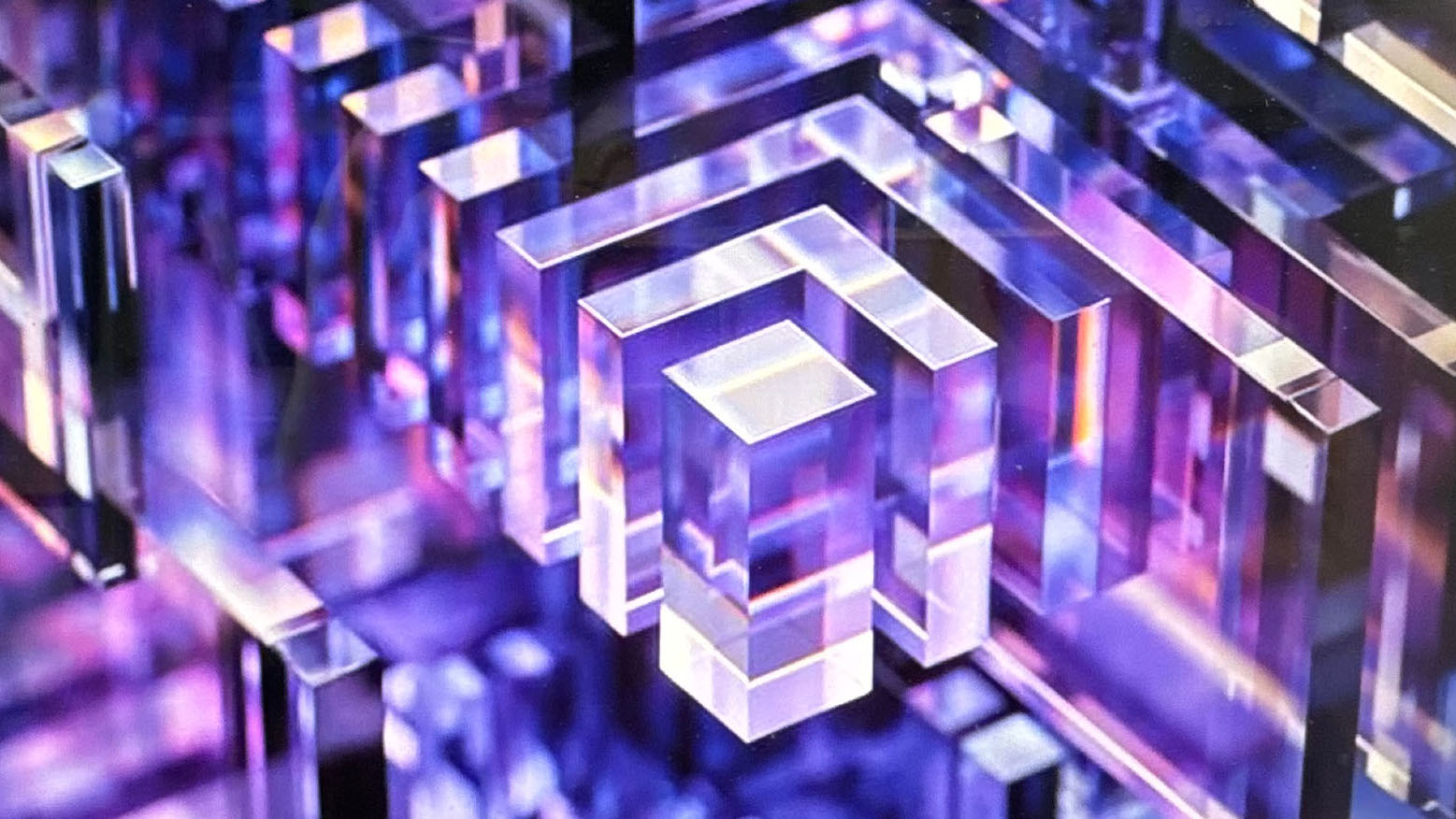 Microsoft vs Google: where is the battle for the ultimate AI assistant taking us?
Microsoft vs Google: where is the battle for the ultimate AI assistant taking us?Tech editor Jonathan Bell reflects on Microsoft’s Copilot, Google’s Gemini, plus the state of the art in SEO, wayward algorithms, video generation and the never-ending quest for the definition of ‘good content’
By Jonathan Bell
-
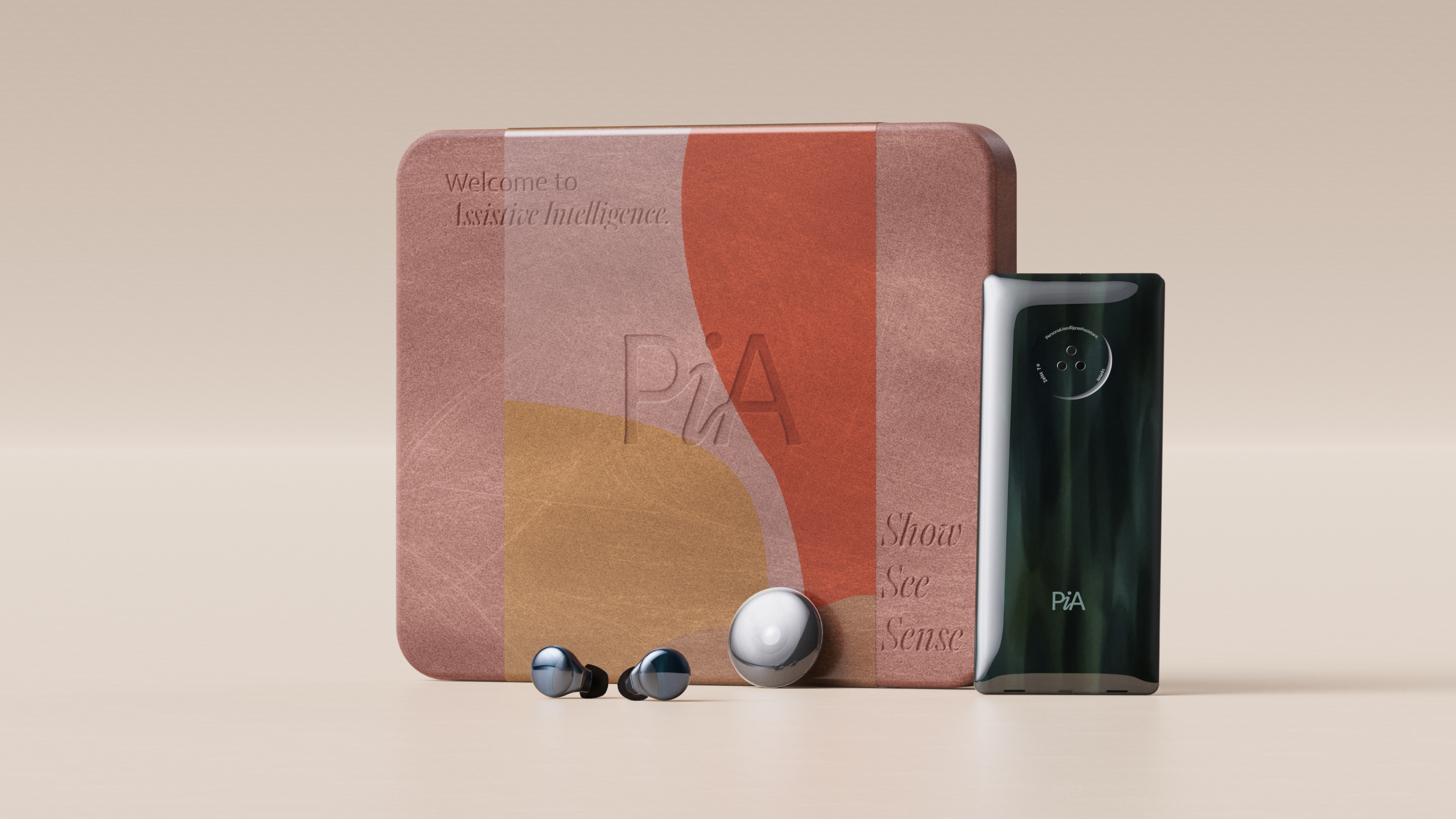 Layer conceptualises a next-gen AI-powered device: introducing the PiA
Layer conceptualises a next-gen AI-powered device: introducing the PiAPiA, the Personal Intelligent Assistant, is a conceptual vision of how AI might evolve to dovetail with familiar devices and form factors
By Jonathan Bell
-
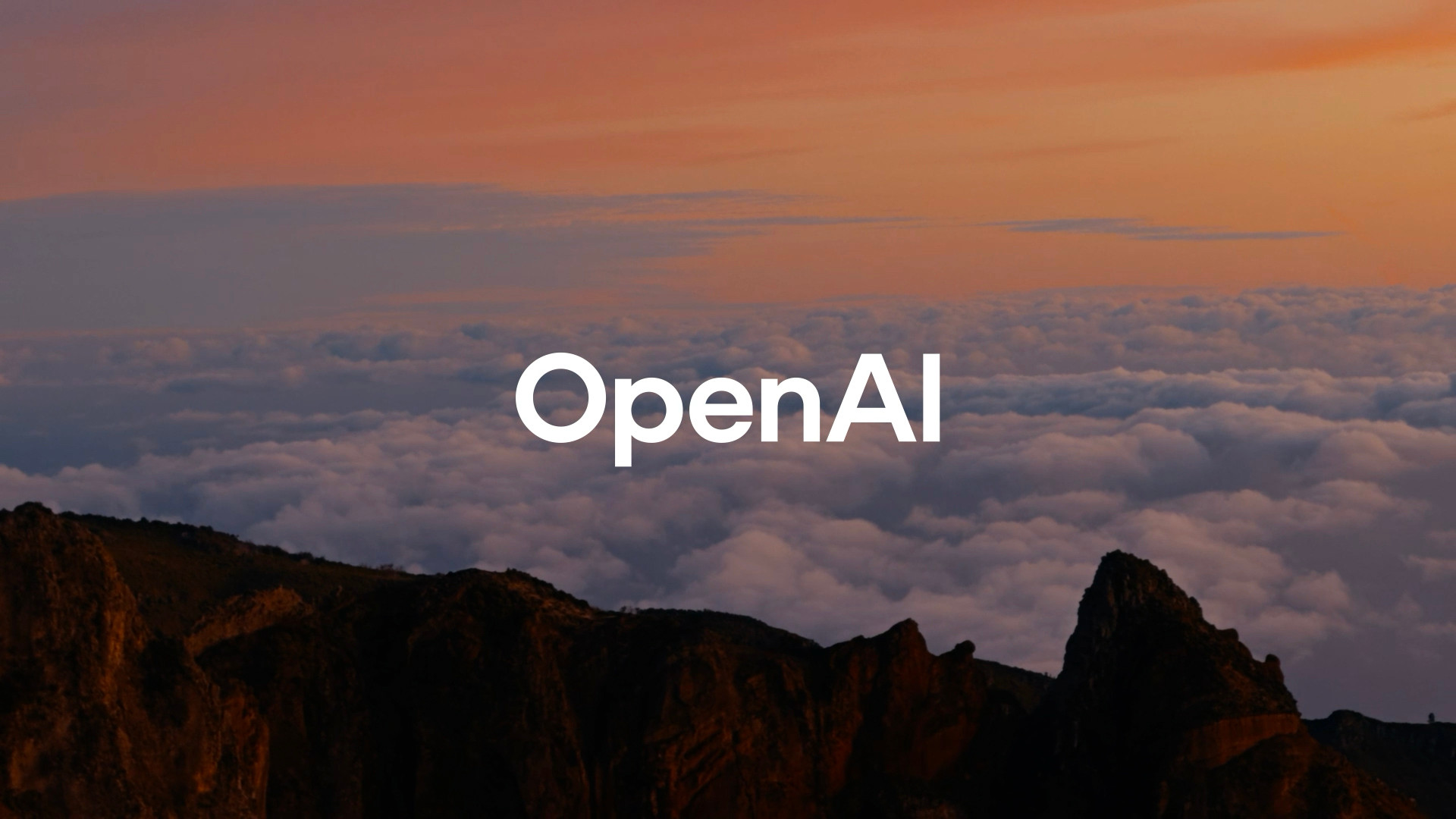 OpenAI has undergone its first ever rebrand, giving fresh life to ChatGPT interactions
OpenAI has undergone its first ever rebrand, giving fresh life to ChatGPT interactionsA new typeface, word mark, symbol and palette underpin all the ways in which OpenAI’s technology interacts with the real world
By Jonathan Bell
-
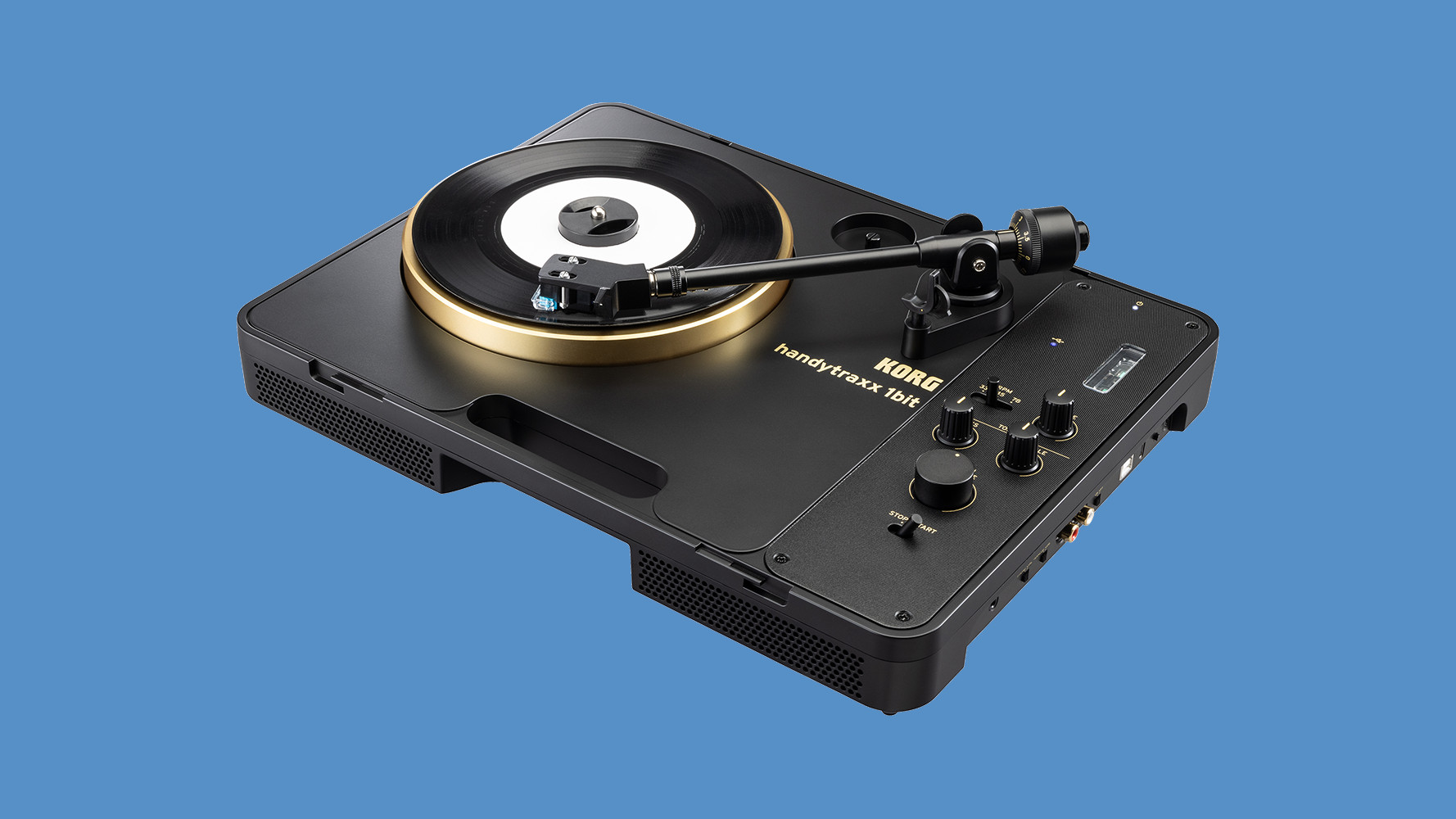 NAMM 2025: 10 takeaways from the world's most important music show
NAMM 2025: 10 takeaways from the world's most important music showCalifornia's annual NAMM show brings musical instrument manufacturers big and small to show off their latest wares and audio innovations. Here are ten of the best from 2025
By Jonathan Bell
-
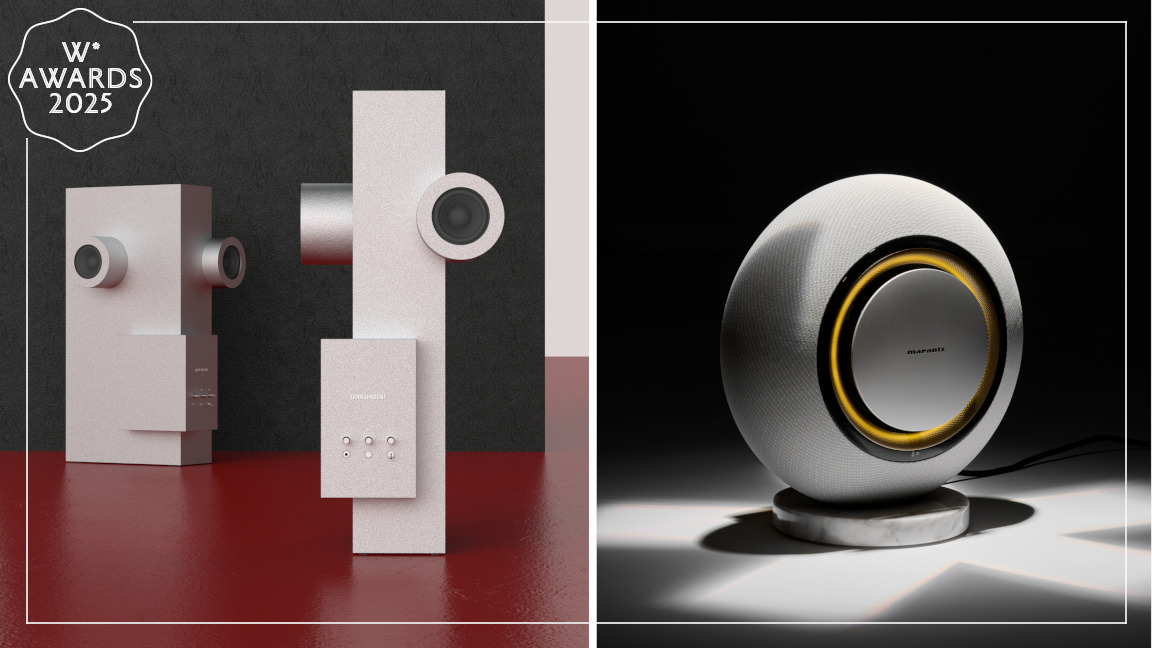 Wallpaper Design Awards 2025: In tech, we’re worshipping at the altar of inanimate objects, not smart devices
Wallpaper Design Awards 2025: In tech, we’re worshipping at the altar of inanimate objects, not smart devicesThe very best contemporary technology, as celebrated by the 2025 Wallpaper* Design Awards and detailed by tech editor Jonathan Bell – watch the video
By Jonathan Bell
-
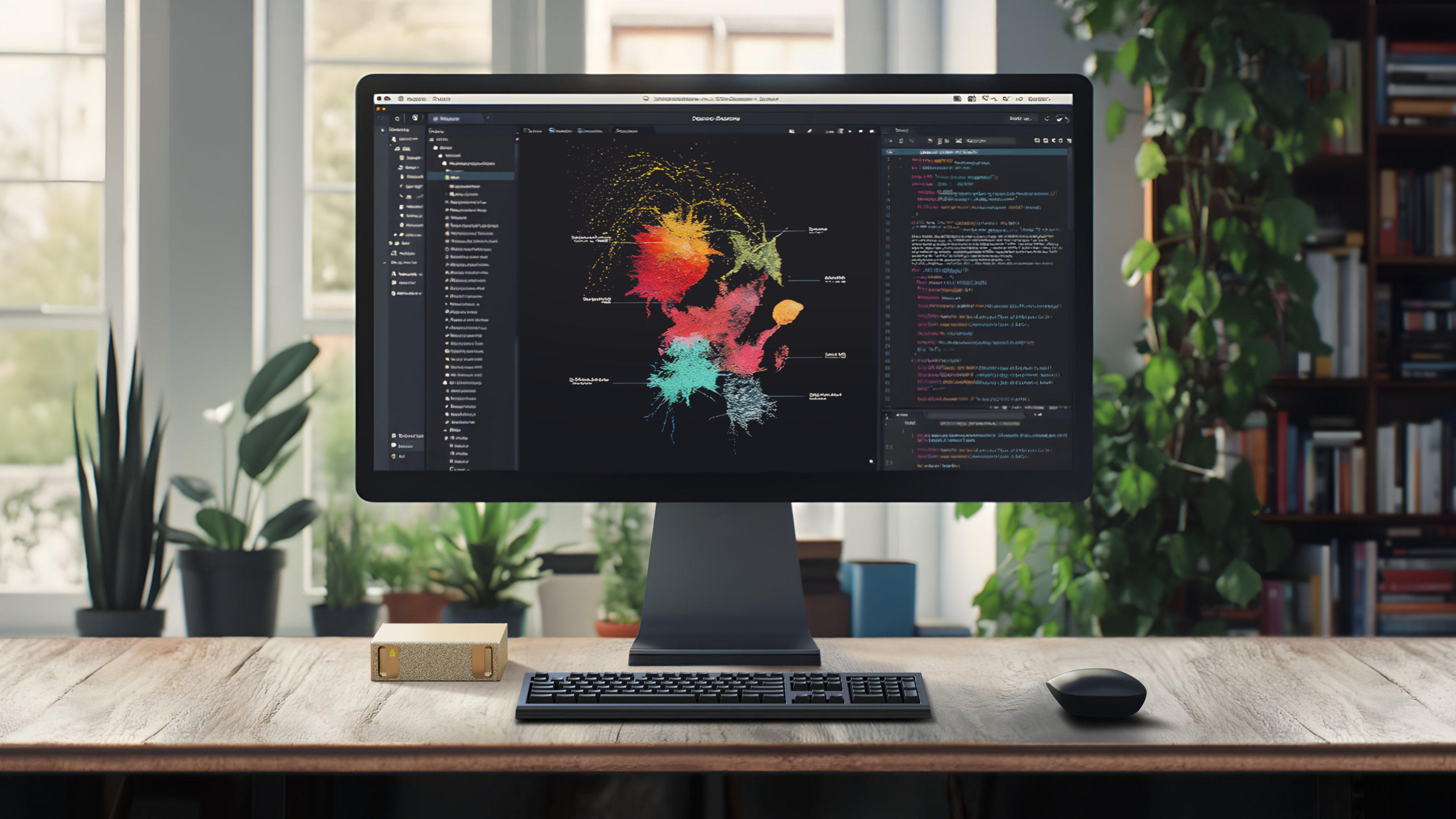 At CES 2025, Nvidia accelerates towards an AI-driven, robotic-powered autonomous future
At CES 2025, Nvidia accelerates towards an AI-driven, robotic-powered autonomous futureNvidia reveals a personal AI supercomputer, digital replicants of the physical realm, and chips to give cars and robots their long-awaited true autonomy
By Jonathan Bell
-
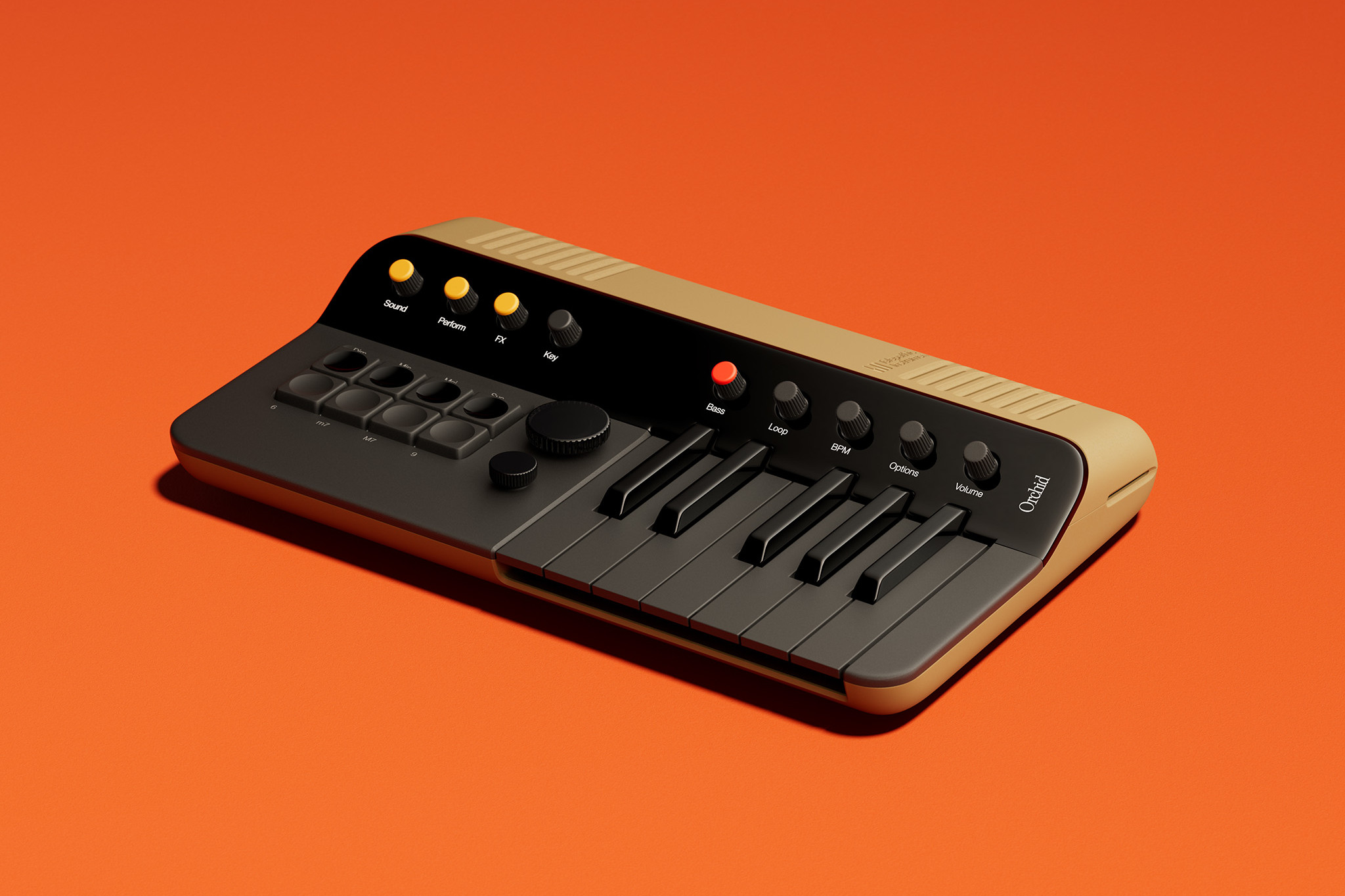 Year in review: top 10 gadgets and tech of 2024, as chosen by technology editor Jonathan Bell
Year in review: top 10 gadgets and tech of 2024, as chosen by technology editor Jonathan BellThe very best of 2024’s gadget and technology launches and stories, from emerging AI to retro gaming, laser projectors and musician’s side projects
By Jonathan Bell
-
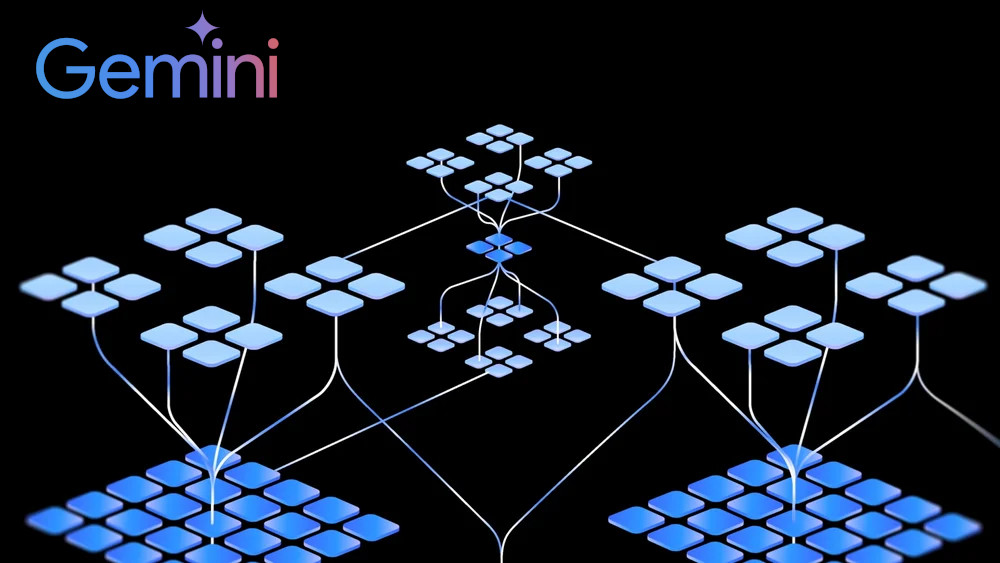 Is Google’s Gemini AI the best way of getting the most out of our machines?
Is Google’s Gemini AI the best way of getting the most out of our machines?From summaries to lists of suntan lotion and swimsuits, Google reckons Gemini can save us all time and effort. We dig into new uses for AI
By Jonathan Bell